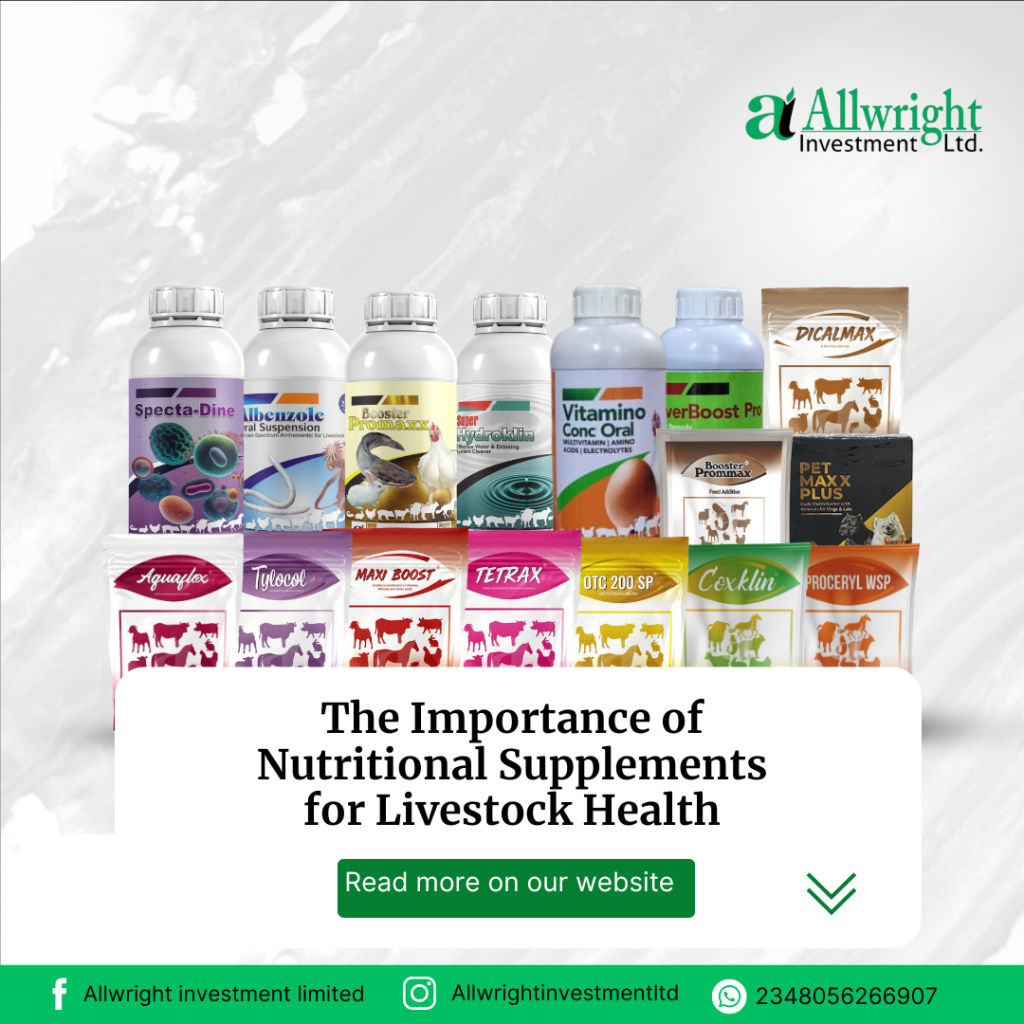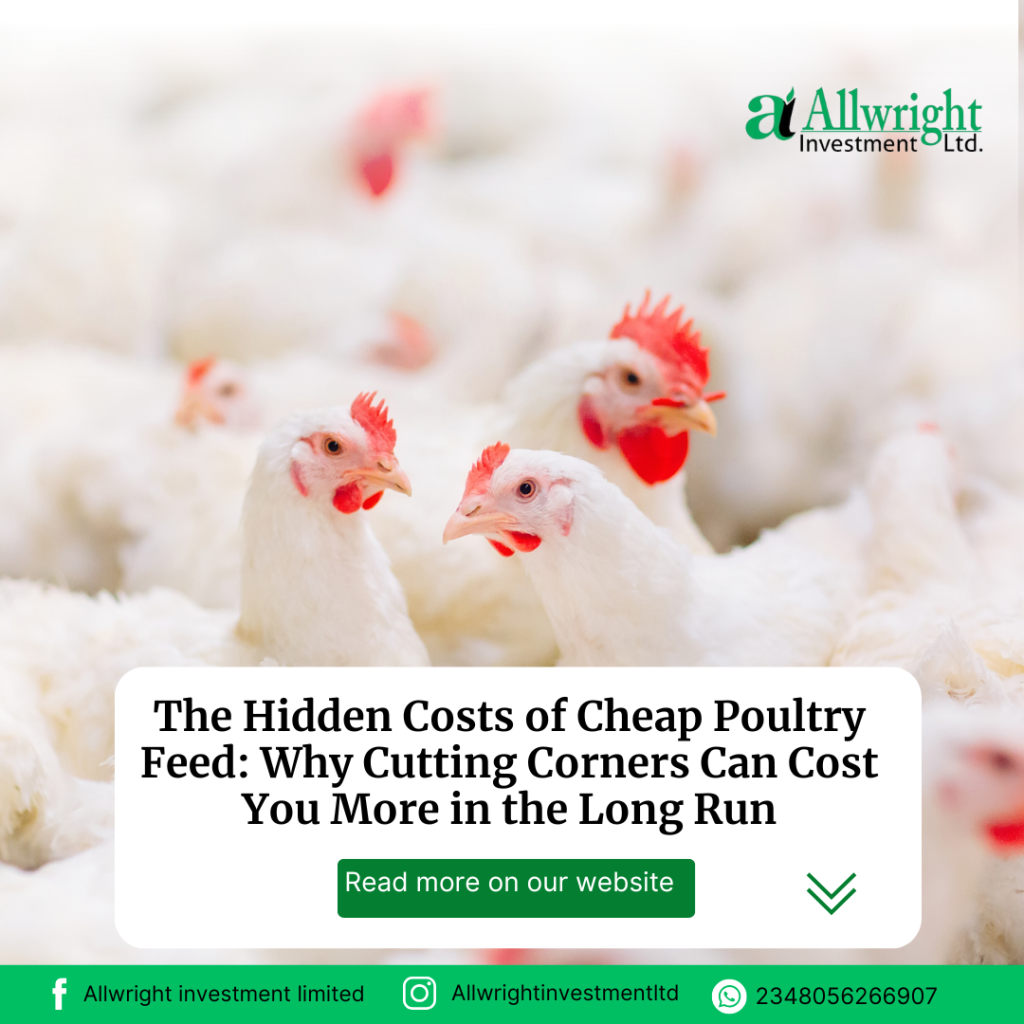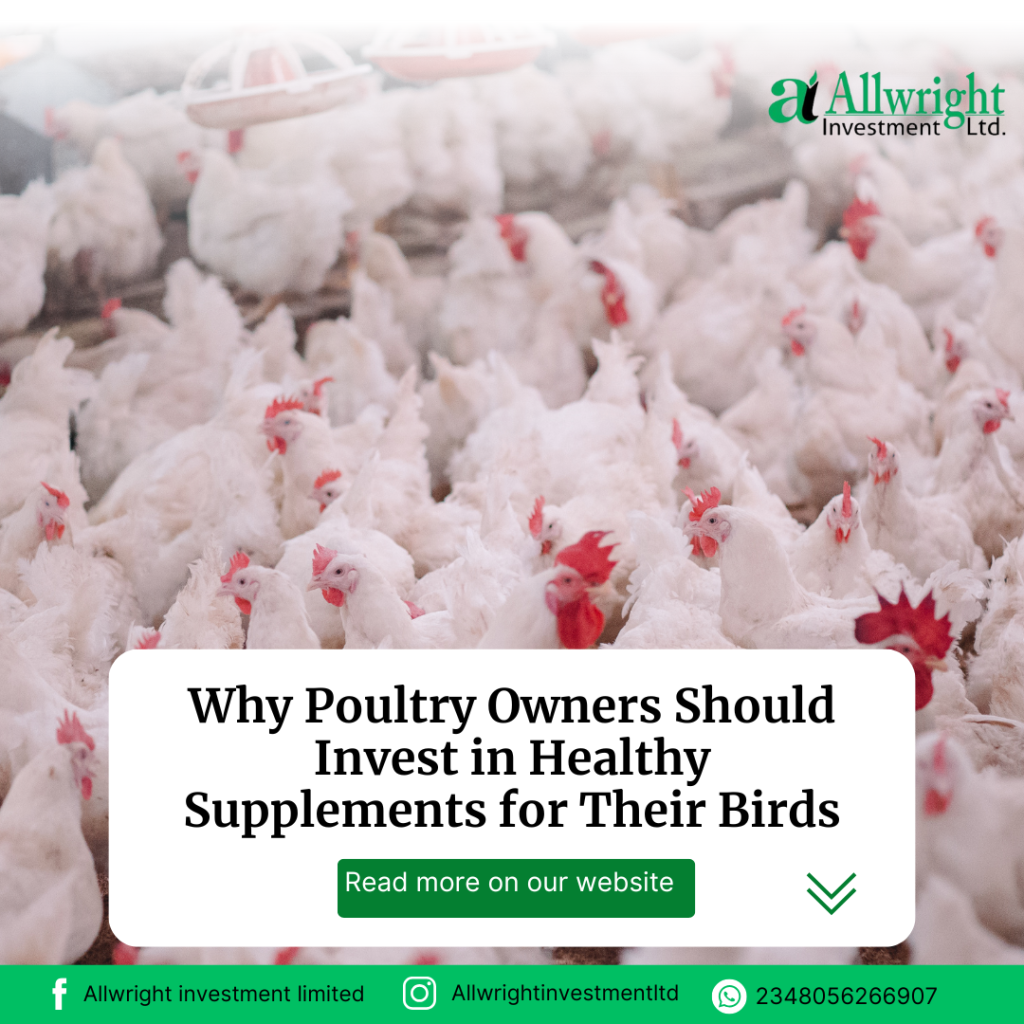The Importance of Nutritional Supplements for Livestock Health

The Importance of Nutritional Supplements for Livestock Health
Raising healthy, productive livestock requires more than just quality feed and clean water. Just like humans, animals need essential vitamins, minerals, and nutrients to thrive—especially when natural feed sources fall short.
Nutritional supplements play a critical role in preventing deficiencies, boosting immunity, and improving growth rates in cattle, poultry, swine, and other farm animals. In this post, we’ll explore why supplements are vital for livestock health and how they can benefit your farm’s productivity.
Why Do Livestock Need Nutritional Supplements?
1. Fill Nutritional Gaps in Feed
Even high-quality forage and grains may lack key nutrients due to:
- Soil depletion (reducing mineral content in crops)
- Seasonal variations in pasture quality
- Processing and storage losses in commercial feed
Supplements ensure animals get a balanced diet, preventing deficiencies that lead to poor growth, weak immunity, and reproductive issues.
2. Boost Immunity & Disease Resistance
A well-nourished animal has a stronger immune system, reducing the risk of infections like:
- Mastitis in dairy cows
- Respiratory diseases in poultry
- Scours (diarrhea) in calves and piglets
Key immune-boosting supplements include:
- Vitamins A, D, E, and C
- Zinc, selenium, and copper
- Probiotics and prebiotics (for gut health)
3. Enhance Growth & Productivity
Supplements can improve weight gain, milk production, and egg-laying capacity by:
- Amino acids (lysine, methionine) – Essential for muscle development
- Calcium & phosphorus – Crucial for bone strength and milk yield
- Energy boosters (B vitamins, electrolytes) – Help animals recover from stress
4. Prevent Metabolic Disorders
Livestock can suffer from deficiency-related diseases, such as:
- Milk fever (calcium deficiency in dairy cows)
- White muscle disease (selenium/vitamin E deficiency in calves & lambs)
- Rickets (vitamin D/phosphorus deficiency in young animals)
Targeted supplements help prevent these costly conditions before they impact herd health.
5. Support Reproduction & Fertility
Nutrition directly affects breeding success. Key supplements for reproduction include:
- Vitamin E & selenium – Improve sperm quality and conception rates
- Omega-3 fatty acids – Enhance embryo survival
- Magnesium & iodine – Prevent stillbirths and weak offspring
How to Choose the Right Supplements for Your Livestock
Not all supplements are created equal. Consider:
✔ Animal type & life stage (e.g., calves vs. lactating cows)
✔ Local soil & feed deficiencies (get a forage test if possible)
✔ Delivery method (powders, blocks, liquid drenches, or injectables)
✔ Quality & safety (opt for trusted, research-backed brands)
Final Thoughts
Investing in high-quality nutritional supplements is a cost-effective way to:
✅ Reduce veterinary bills
✅ Improve feed efficiency
✅ Increase meat, milk, and egg production
✅ Ensure long-term herd health
At Allwright Investment limited, we offer science-backed supplements tailored to your livestock’s needs. Explore our range today and give your animals the nutrition they deserve!


